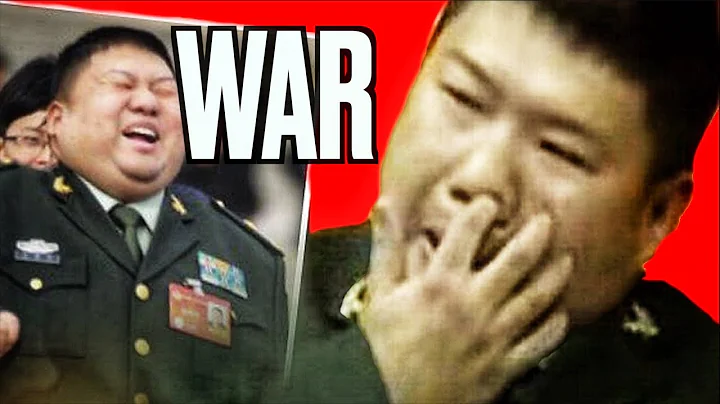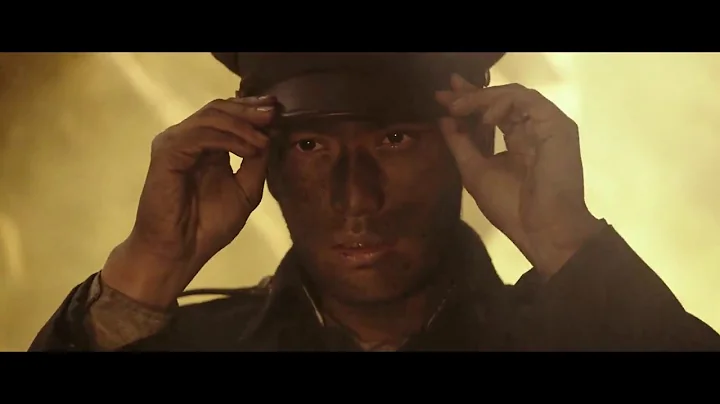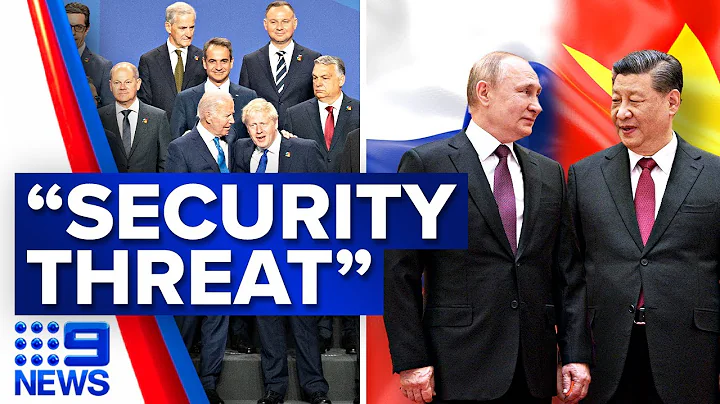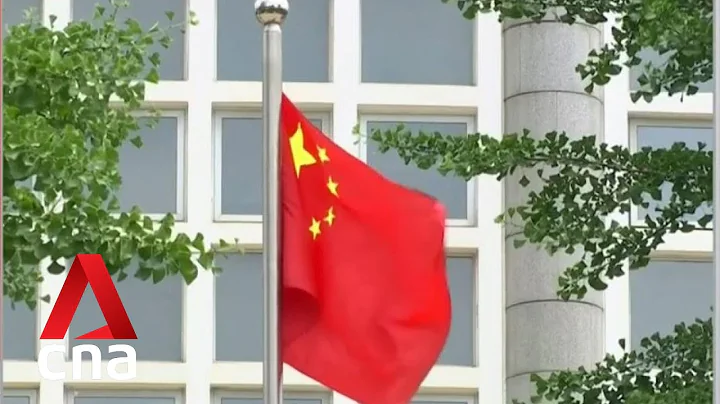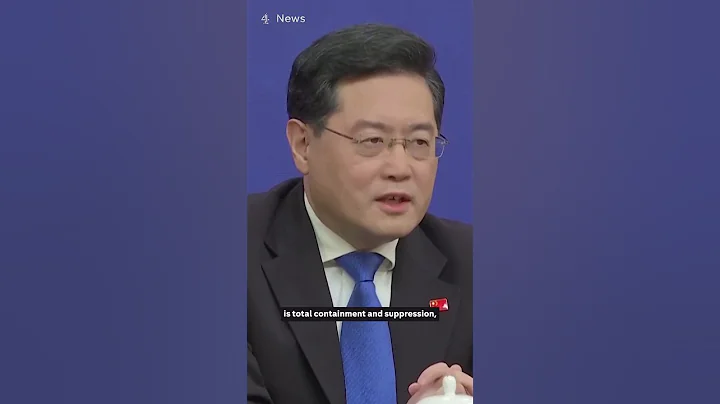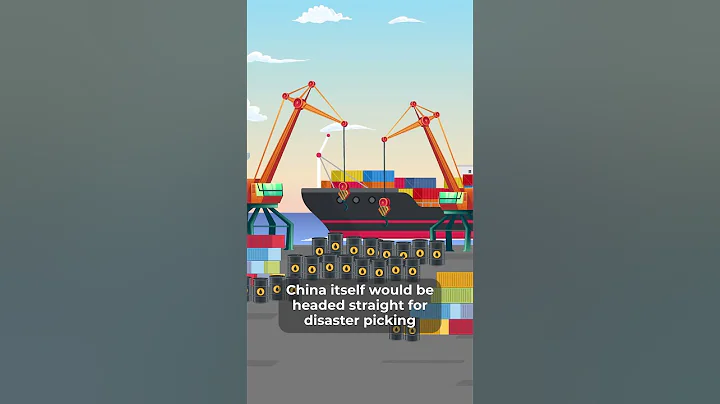besieged Peiping and adapted Fu Zuoyi's

In early November 1948, after the Liaoshen Campaign ended, the national military situation changed fundamentally. As Chairman Mao said: Our army not only has an advantage in quality, but also has an advantage in quantity. The Kuomintang army dropped from 4.3 million when the full-scale civil war broke out to 2.9 million, and the total strength of the People's Liberation Army increased from 1.2 million to 3 million. In mid-November, our East China Field Army and Central Plains Field Army launched the Huaihai Campaign and successfully divided the Xuzhou Liuzhi Group.
Chairman Mao considered the overall situation of combat readiness and decided to launch the Pingjin Campaign in advance in order to prevent the enemies in the Pingjin area from retreating to the southHuaihai and annihilate the Fu Zuoyi Group on the spot in the Pingjin area.
At this time, there are three possibilities for the movements of Fu Zuoyi's group: one is to flee to the west and Suiyuan, the other is to flee south, and the third is to stick to Peiping. Chiang Kai-shek Although he prefers to withdraw to the south, his determination has not yet been determined, and the opinions within the Kuomintang are also inconsistent. Some people advocate withdrawing south to join Liu Zhi's group, while opponents believe that withdrawing from Pingjin will lose the entire North China. The enemy is in a state of uncertainty and hesitation. However, whether the enemy flees westward or southward, it is not conducive to our army's plan to annihilate the enemy on the spot; and sticking to Peiping will also increase our army's losses during the attack. To this end, Chairman Mao strategized and asked the Northeast Field Army to secretly enter the customs on November 23. The next day, Yang Chengwu of the Third Corps of the North China Field Army was ordered to give up the attack on Guisui, and suddenly surrounded Zhangjiakou from west to east. The purpose was to attract Fu Zuoyi's troops to go west to rescue Zhangjiakou, and to delay the southward escape of the Pingjin enemy troops.
At this time, Chiang Kai-shek and Fu Zuoyi believed that the Northeast People's Liberation Army needed at least 3-6 months of rest before they could march southward, so they mistakenly judged that it was only the North China People's Liberation Army that besieged Zhangjiakou. On the 30th, Fu Zuoyi ordered the 35th Army of the direct line troops stationed in Peiping to take more than 400 trucks from Peiping to reinforce Zhangjiakou. In this way, our army successfully led Fu Zuoyi's main force out of Peiping.
Around December 5, Cheng Zihua of the Dongye Advance Corps, who had secretly entered the Pass, led two columns to attack Miyun. Only then did Fu Zuoyi discover that our Northeast Field Army had entered the Pass. He quickly shrunk his troops and ordered the 35th Army to retreat. At this time, Chairman Mao had already made arrangements and ordered Yang Dezhi and Luo Ruiqing of the Second Corps of the North China Field Army to attack quickly and trap the enemy's 35th Army in Xinbao, but could not annihilate them. After the 35th Army was surrounded, Fu Zuoyi urgently ordered the 16th Army and the 104th Army to advance westward from Peiping to support the 35th Army's retreat eastward. In this way, we successfully led the two enemy armies out of Beiping City . As long as the enemy is lured out of Peiping, it will be conducive to our army's division and encirclement and the elimination of the enemy during field movements. After that, the Dongye Advance Corps and the North China Second and Third Corps actively cooperated, first wiping out the reinforced 16th Army and 104th Army, and then completely annihilating the 35th Army of New Security Army, and finally liberated Zhangjiakou, wiping out nearly 200,000 enemies in total. People created prerequisites for encircling and annihilating the enemies of Pingjin.
Chairman Mao's strategic intention is very clear, which is to first lead Fu Zuoyi's 35th Army to march westward, so that Fu Zuoyi can be held back and Fu's tribe can be prevented from escaping south, which is equivalent to holding back Chiang Kai-shek. After that, with the main force of Dongye entering the customs, the encirclement of Fu Zuoyi Group was quickly completed. After our master passed away, we were ordered to attack the Jinzhong River Bridge from a long distance in order to complete the siege of Fu Zuoyi's group and prevent Fu's troops from escaping south from Tanggu Shipping. In order to attack Tanggu, the Seventh Column Commander Deng Hua had scouted the terrain in advance, and then Lin Biao ordered Liu Yalou to conduct another reconnaissance. Because the terrain in the Tanggu area was easy to defend and difficult to attack, it was not conducive for our army to completely annihilate the defending enemies. In the end, Ye Si decided to temporarily give up attacking the Tanggu enemies and attack Tianjin first, thereby completely completing the siege of Pingjin.
At the end of December 1948, our division was ordered to return to the 47th Army and march to Langfang between Peiping and Tianjin. The main task was to prevent Peiping's enemies from escaping south, and at the same time make pre-war preparations for the attack on Peiping. According to the actual height of the city wall , thickness and other conditions, we mainly conduct combat training such as city climbing and street fighting. Commanders and fighters at all levels have repeatedly conducted city climbing drills.
On January 15, 1949, Chief of Staff Liu Yalou led more than 5 columns with a total of 22 divisions and 340,000 troops to launch a general attack on the Tianjin defenders. It only took 29 hours to completely annihilate the Tianjin defenders and capture Tianjin garrison commander Chen Changjie alive. The battle ends victoriously. The liberation of Tianjin shocked the Peking defenders and completely shattered the Fu Zuoyi group's attempt to escape southward by sea. All this was achieved under Chairman Mao's personal command.
html On January 31, General Fu Zuoyi, the commander of the "Suppression General" in North China, was surrounded by the People's Liberation Army. He understood the righteousness and accepted the eight conditions for peaceful reorganization proposed by the Central Committee of the Communist Party of China. He led his troops to submit, accepted the peaceful reorganization, and declared Peking Peace Liberate .After the liberation of Peiping, the 47th Army did not enter the city. It was ordered to go to Gu'an, Hebei for training, and was responsible for the task of reorganizing the 262nd and 267th Divisions of Fu Zuoyi's department.
html In early March, two divisions from the Fu Department arrived in Gu'an to undergo adaptation. The 262nd Division was the main force of Fu Zuoyi's division, while the 267th Division was a direct descendant of Chiang Kai-shek. Since all the reorganized troops were still armed at this time, before they withdrew from Peiping, they selected a large number of spies, spies and political workers to change their identities and adjust their duties in an attempt to undermine the peaceful reorganization. For this reason, our superiors asked us to not only welcome Fu Bu but also to be vigilant. In order to smoothly reorganize Fu Zuoyi's department, the 47th Army transferred more than 400 cadres above company level from the entire army and assigned them to these two divisions to reorganize them according to the regimental structure.In order to ensure a smooth and safe adaptation, we first traced the Kuomintang agents in these two divisions. Many of the officers in the department secretly engaged in sabotage, and we sent most of them out. At that time, the policy for the reorganization of the insurrectionary troops was very lenient.
If an officer is willing to join the People's Liberation Army, the chief officer is generally changed to a deputy position and continues to serve; if he is not willing to join the People's Liberation Army, he can still receive three months of military pay and go home. Our regiment had a regimental commander from the Kuomintang Army as deputy regimental commander. He worked for two months and finally left the army. Because the People's Liberation Army's management system and training methods are completely different from those of the Kuomintang army. Even if they are willing to stay, it is generally not easy to do their job. Most of the officers above the battalion level have left the People's Liberation Army, and we have sent away about 3,000 of them. Many company and platoon-level cadres were left behind. A total of more than 5,000 soldiers who were young and from good families were left to join our army, and the original unit designation was cancelled. After more than a month of hard work, we successfully completed the tasks assigned by our superiors.
's peaceful adaptation of Fu Zuoyi's 260,000 troops was a major initiative in the history of the Chinese People's Liberation Army. In a short period of time, the officers and soldiers in the reactionary army were successfully transformed into members of the revolutionary ranks. This completely relied on the correct policies of the Communist Party and the political advantages of the people's army. After hard study and ideological transformation, many of them performed well in the subsequent war southward and the War to Resist U.S. Aggression and Aid Korea, and many of them were promoted to battalion and company cadres.
During the training in Gu'an, in addition to reorganizing the Fu Zuoyi uprising troops, we also carried out political and ideological education throughout the army.
After the three major battles of Liaoshen, Huaihai, and Pingjin, the area north of the Yangtze River has been basically liberated, and the revolutionary situation has developed rapidly. However, the thinking of some cadres and soldiers cannot keep up with the objective requirements of the development of the revolutionary situation. Especially among the grassroots cadres whose hometowns have been liberated, some want to go home. There are some grassroots cadres in our army who participated in the revolution during the Anti-Japanese War. They left home for five or six years, or even in 1989, and have never returned home. Now that the revolution has won, they want to return to their hometowns to settle down. At that time, the army stipulated that family members could come to visit relatives, but cadres and soldiers were not allowed to go home to visit relatives. However, there are also some cadres who are looking for various excuses to transfer to work in local areas rather than stay in the combat units. For example, there is a battalion commander in our regiment who is an only son and is getting married. During the training period in Gu'an, he was hospitalized due to illness. After being discharged from the hospital, he asked to stay in the rear and work in the rear area, unwilling to return to the combat unit.
One of my security guards also sneaked back to his hometown in Northeast China to participate in local work. The head of the management section of the regiment was a 1938-type cadre who was brave in combat. After the army arrived in Gu'an, he took leave and went home, and did not go south with the army again.
Among the fighters, those with unstable minds are mainly those from the Northeast. They believe: We have liberated both Northeast and North China, and have contributed to the revolution, and now we should be allowed to go home.In particular, the thoughts of grassroots cadres are most important to stabilizing the army. Seventy or eighty people in our regiment left the army and went home during this period. In response to the above situation, we conducted situation education in the whole group and criticized some people's peaceful illusions and half-measures. By organizing new soldiers to complain and dig out the root causes, and organizing old soldiers to investigate and forget their original thoughts, we can correctly understand the relationship between individuals and the revolution, further enhance the class consciousness of the soldiers, stimulate class hatred, and establish the goal of carrying the revolution to the end, completely overthrowing the reactionary rule of the Kuomintang, and liberating the whole country. China's confidence.
In early March 1949, the Party Central Committee held the Second Plenary Session of the Seventh Central Committee of the Communist Party of China in Xibaipo, China. In April, the superiors required cadres at division level and above to go to Peiping to study the spirit of the Second Plenary Session of the Seventh Central Committee of the Communist Party of China. They also organized our regiment and battalion cadres to visit Peking City for three days.
I remember it was about mid-April. We took a bus from Gu'an and arrived in Peking City in two hours. Most of us come from rural areas and have never been to an imperial city or an ancient capital. Naturally, we were very excited to be there. We visited the Forbidden City, Temple of Heaven, Summer Palace, Great Wall and other places of interest. The short three-day trip to Peking broadened our cultural horizons and enriched our historical knowledge.
In the past, for us farm children, entering the palace was unthinkable. We only heard Mr. Shu vividly talk about it when we were children. Now we have personally walked into the Forbidden City and seen with our own eyes the residence of the emperor. The places I have lived in have indeed been rewarding and have many indescribable feelings.
The cultural relics and historic sites we saw in Peking are all very well protected. As early as the siege of Peking, the Party Central Committee issued very strict orders, not only clearly requiring the protection of the Forbidden City, the Temple of Heaven and other cultural relics and historic sites in the city, but also specifying the ancient buildings outside the city one by one. The strict order must be protected even during the battle. Protect cultural relics and do not destroy them. This was very difficult to achieve during the war years. Most of the grassroots cadres and soldiers of our army are from farmers and have no idea what cultural heritage is and the value of protecting cultural relics. To this end, superiors not only promulgated strict disciplines, but also conducted meticulous and patient education. The peaceful liberation of Peiping and the strict discipline of our army made it possible to preserve the cultural relics, monuments, and historical buildings of the ancient capital Peiping intact and intact. This is an immeasurable historical contribution made by the Communist Party of China to protect China’s traditional culture, architecture, and artistic heritage.
We stayed in Peiping for three days. The hotel was close to the famous Chang'an Grand Theater .
At that time, all cultural life in Peiping was as usual. The plays at the Chang'an Grand Theater were performed every night, and we went to the theater every day. I remember what I watched on the first night was "The Matchmaker" played by Xun Huisheng , one of the four famous actresses. At that time, most ordinary cadres did not know the names of Xun Huisheng and Shang Xiaoyun. The most famous one was Mei Lanfang.
During my visit to Peking, two things particularly impressed me. First, I deeply feel the heartfelt love of the majority of Peiping citizens for the Communist Party and the People's Liberation Army. The most popular and loudest song in Peiping at that time was "The sky in the liberated areas is clear"! In the past half century, the citizens of Peiping have seen too many soldiers, from the Eight-Power Allied Forces at the beginning of the century Entering Beijing, you will see the general warlords of the Beiyang period, such as Duan Qirui of the Anhui clique, Zhang Zuolin of the Feng clique, and the braided soldiers of Zhang Xun's restoration, no matter which army entered Peiping brought endless harm to the people; after that, Peiping experienced another eight years of brutal rule by the Japanese and puppet troops; the people finally survived the victory of the Anti-Japanese War, but what they faced was the "robbing" Kuomintang army and rampaging US military jeep.
The people of Peiping City have never seen such a disciplined army as the People's Liberation Army. After the People's Liberation Army entered the city, they strictly implemented the Three Major Disciplines and the Eight Points of Attention. Some troops cannot find accommodation for the time being, so they sleep on the streets. Many troops also held parties with units and schools near their stations to publicize the victory of the revolution and help the general public solve their practical life difficulties.The People's Army has won the hearts of the people in Peiping with its actual actions, and has truly achieved a close relationship between the army and the people with the people.
Another deep impression is the reception work of Beiping City. When the Party Central Committee took over Peking, it stipulated that the original social system should not be changed, the original way of life and living habits should be maintained, and the private property of some Qing Dynasty princes, nobles, reactionary bureaucrats and politicians should be protected, and they should still be allowed to work as usual. Old way life. In doing so, it played a positive role in stabilizing and uniting those in the old regime, and won the support and trust of people from all walks of life. Even some upper-class people who had opposed our party in the past gradually changed their initial attitude towards the Communist Party. After the liberation of Peiping, the general public lived and worked in peace and contentment. Not only the original cultural life continued as usual, but the business and service industries also recovered quickly. The Wangfujing and Dashilan areas quickly regained their former prosperity.
When I visited Peiping, one thing surprised me: thieves in Peking City stole pocket watches, cameras, Parker pens and other items that some cadres carried with them during our visit. After we reported the case to the public security organs, no one thought about recovering the stolen items. At that time, the Peiping Public Security Bureau still retained many police officers from the old regime, and they still maintained certain ties with the underworld in Peiping. Afterwards, through their efforts, all the stolen items were recovered intact. This is also difficult to do in the liberated areas. It can be seen that Peiping has been quite successful in the work of taking over the city, almost taking over the entire city intact.
Looking back on my personal growth experience, I went to Yan'an to participate in the revolution in 1938, ushering in the first spring of my life. In Yan'an, I armed myself with Marxist theory and clarified my future life path; in Peking in 1949, I ushered in the second spring of my life. I remember that in 1946, when we had just established a foothold in the north of the Songhua River and our superiors educated us on the situation, we said that we would strive to liberate the whole of China in five years. At that time, we felt that the revolutionary task was still very arduous and difficult. No one expected that the War of Liberation would progress so fast, let alone that our 1st team, Siye , would be the first to advance in Peiping. As a grassroots commander in the four fields, we fought from Songhua River all the way to Beiping City, practicing our life ideals with our own practical actions, and truly combining theory and practice. The new democratic theory I studied in Yan'an will soon be fully realized through personal practice in the past three years, and the complete elimination of the Kuomintang reactionaries is just around the corner. So this is the second spring of my life. I have experienced such a great victory, which has strengthened my determination to liberate all of China.
There is an episode at the end worth remembering. Before the liberation of Peiping, the superiors arranged to attack Peiping, and assigned our regiment to attack the Dahongmen and Xiaohongmen lines in the south of Peiping. It was a coincidence that the regiment responsible for guarding this area at that time was a regiment of the 13th Army of the Kuomintang. The regiment leader Cui Zhongzhou was my classmate in Huangpu at the same time, in the same team, and in the same dormitory. At that time, no one knew that the two sides were facing each other outside Peiping City.
After the liberation of Peiping, Cui Zhongzhou chose to go home during the reorganization. Afterwards, he went south to Shanghai and once again defected to the Kuomintang army and served as the chief of staff of the division. Soon after, he was captured by our army in the battle to liberate Shanghai and was released after education. At that time, his wife and family were all in Peking, so he returned to Peking to do business. During the industrial and commercial transformation in 1954, he participated in the public-private partnership. He was kicked out of the house during the "Ten Years of Turmoil" and sent back to his hometown in Yushu County in Northeast China. He did not implement the policy until the Third Plenary Session of the 11th CPC Central Committee and returned to Beijing.
In 1988, the Beijing Huangpu Military Academy Alumni Association was established, and I was elected as the vice president. One day, Huangpu classmate Liu Jinglin (then a member of the Hebei Provincial Committee of the Chinese People's Political Consultative Conference) came to Beijing to attend the National Committee of the Chinese People's Political Consultative Conference meeting and came to sit at home. During the chat, he mentioned that Cui Zhongzhou was also in Beijing. I immediately found Cui Zhongzhou and invited him to attend the Huangpu Alumni Reunion. Later, we met often and talked about our classmates and past events in the military academy. We also jointly wrote letters to our classmates in Taiwan, inviting them to come back to the mainland to get together. Once I accidentally talked about the Battle of Pingjin, I realized that he was defending the front lines of Dahongmen and Xiaohongmen at that time.One of us was in the city and the other was outside the city. Our classmates almost got into a fight with live ammunition.




